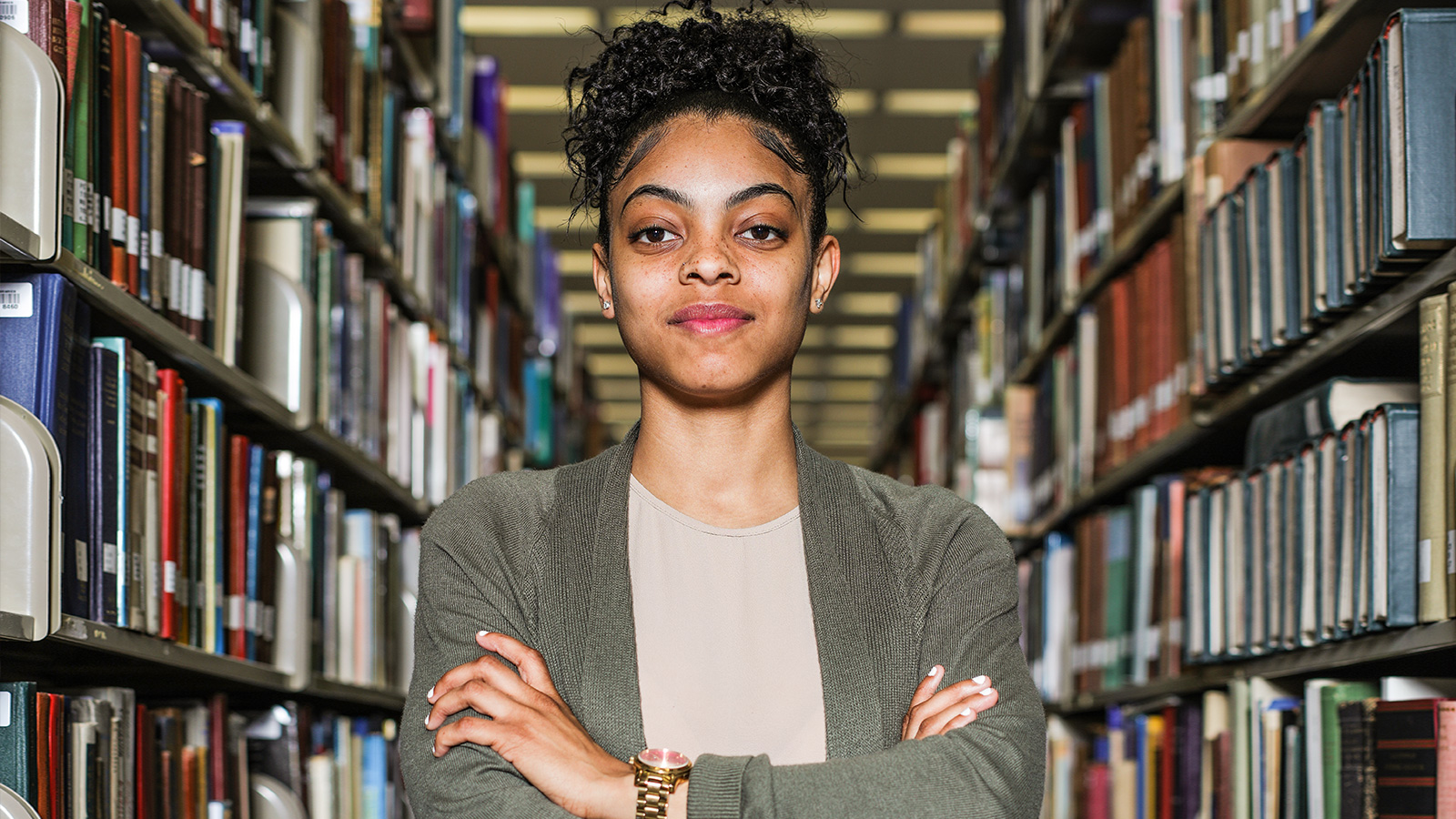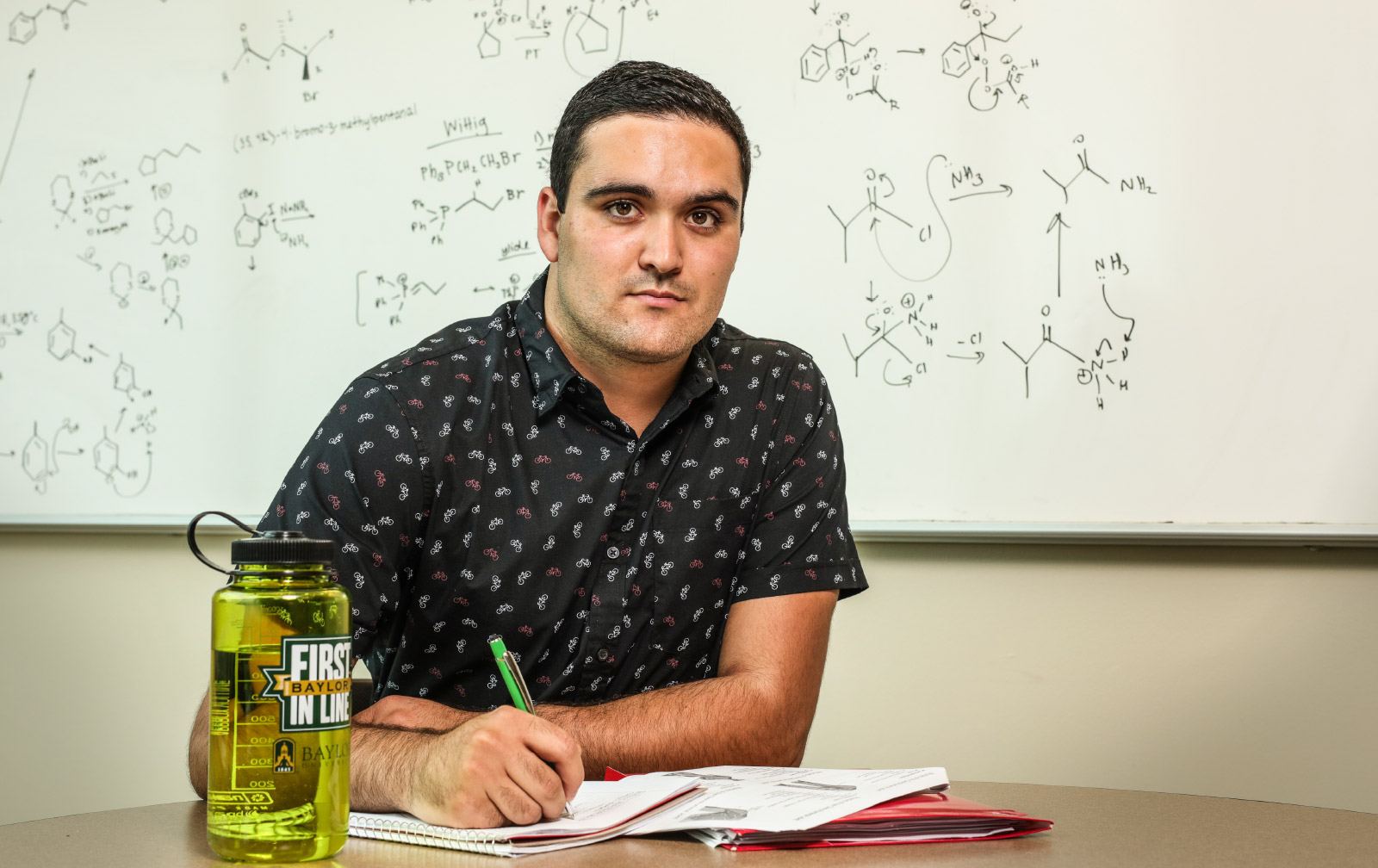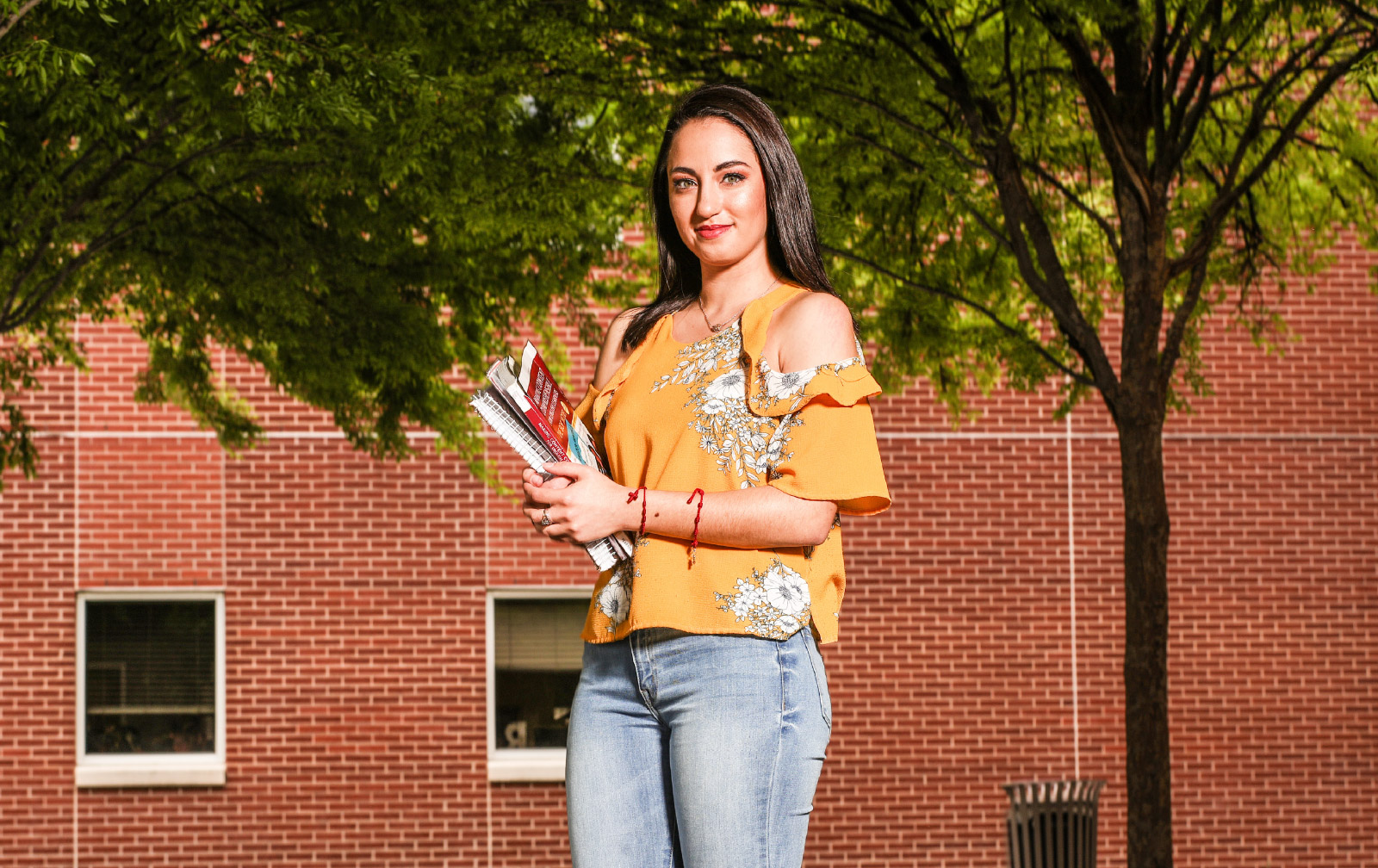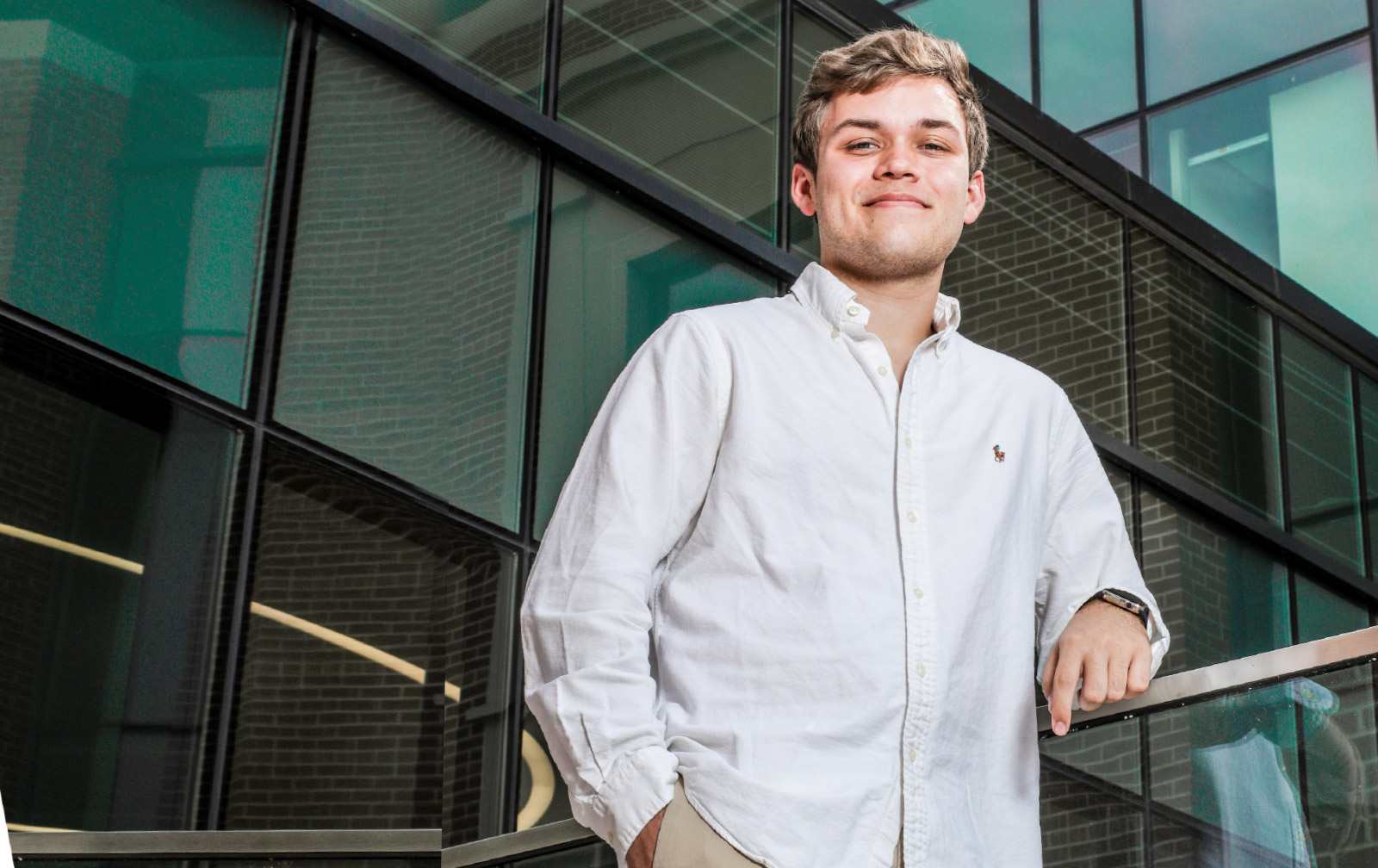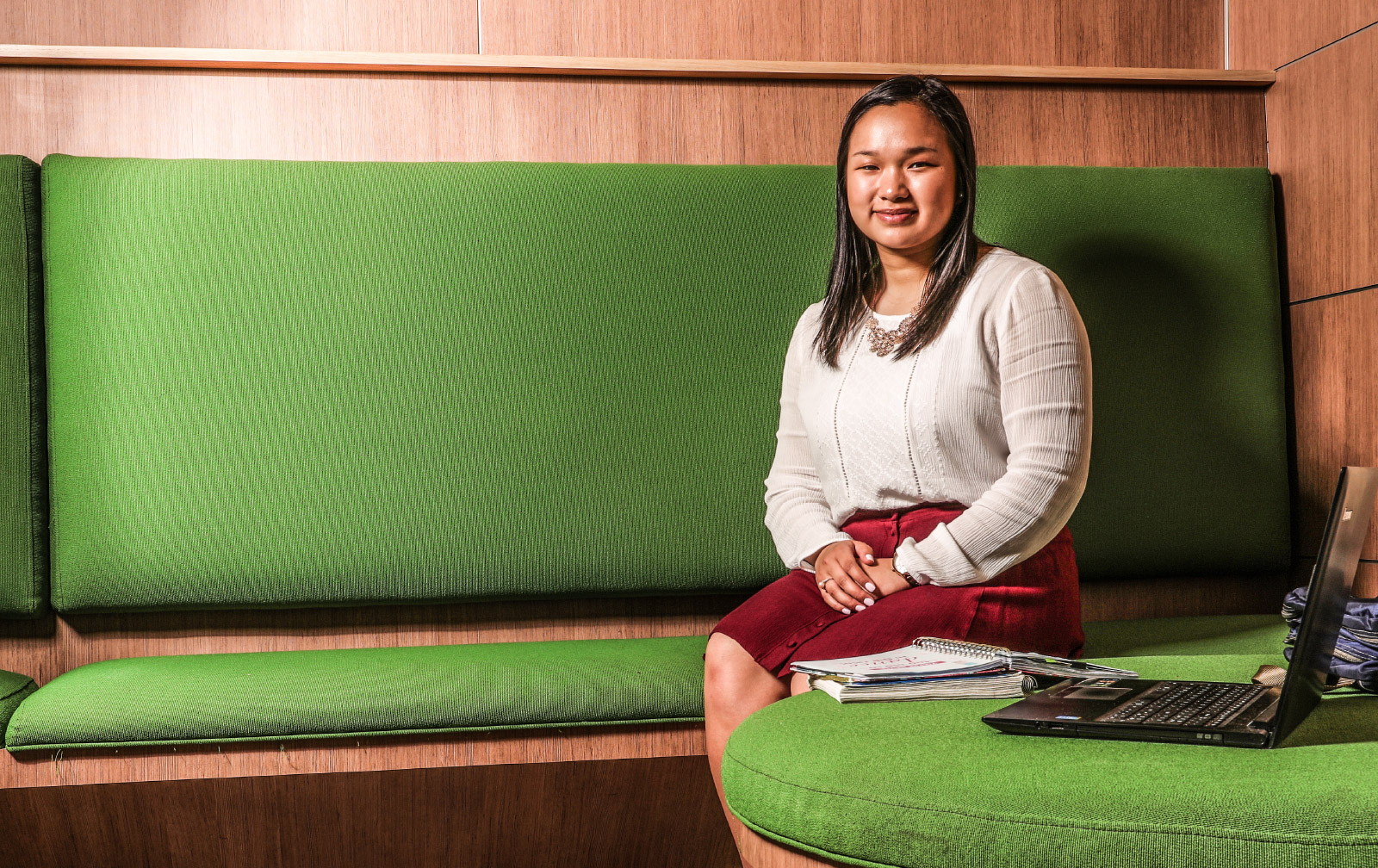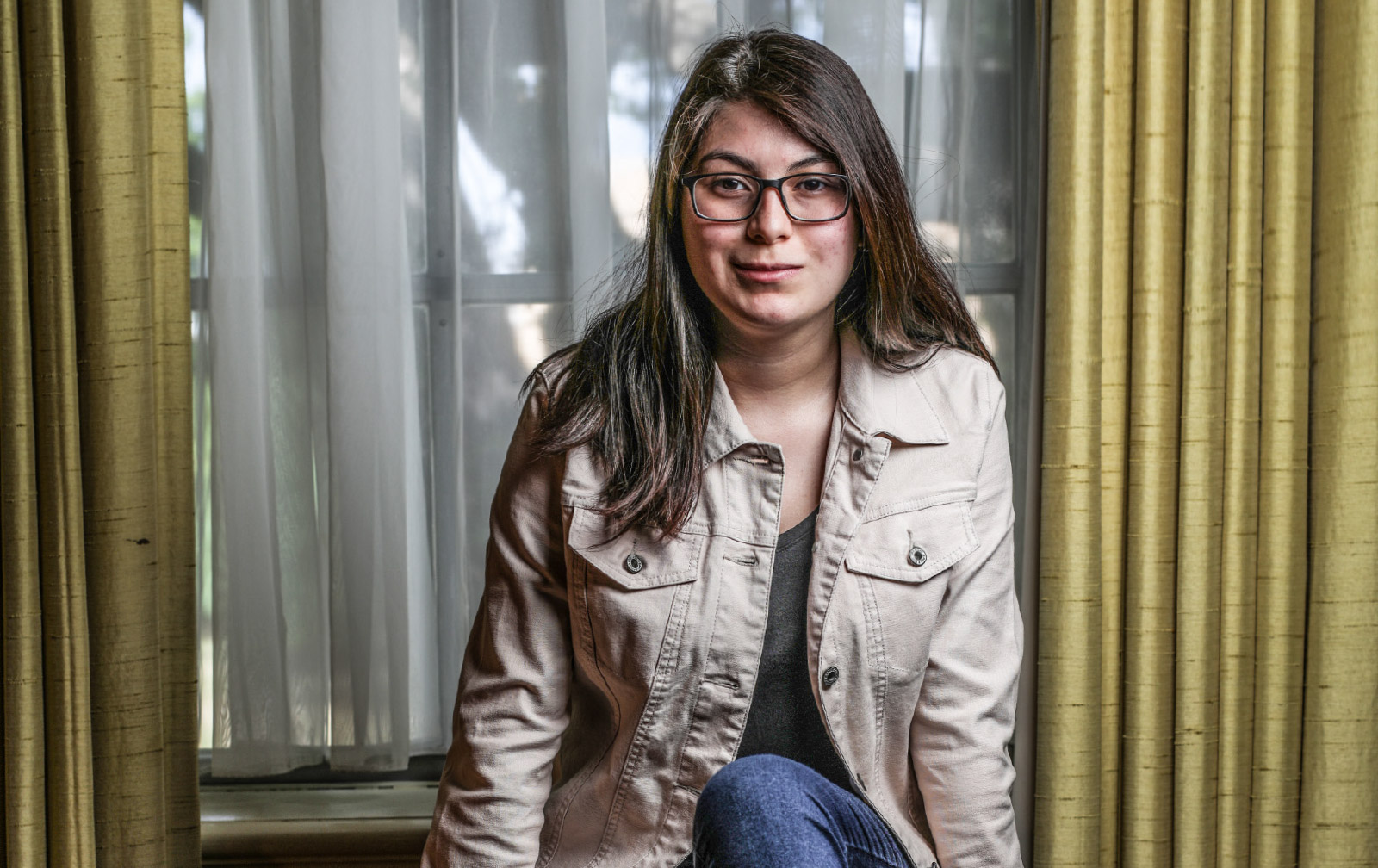First in Line
Baylor's First in Line program helps first-generation college students find their way and feel like family in an unfamiliar environment.
Every fall, Baylor University welcomes thousands of starry-eyed students on the precipice of a new chapter in their lives. Beginning college is a symbolic step in life, one that comes with a mix of excitement and expectation.
For first-generation college students, however, taking that step can be more intimidating and beginning that chapter more challenging.
Dr. Mito Diaz-Espinoza, MSEd ’10, program manager for Baylor’s First in Line program, works to ease first-generation students’ concerns and make the process of beginning college less daunting. A graduate of Waco’s University High School, Diaz-Espinoza knows their plight as he was once in their shoes.
“It’s scary, and it’s exciting,” he says of beginning college with no familial background knowledge of the process. “It scared me so much that it made me a better student.”
Diaz-Espinoza earned a Bachelor of Arts in history from Texas A&M University, a Master of Education in higher education and student affairs from Baylor, and a Doctor of Philosophy in higher education from the University of Tennessee, Knoxville.
The diplomas on the wall of his office at Paul L. Foster Success Center in Sid Richardson Building serve as signs of encouragement for first-generation Baylor students who have little to no context of how to navigate the waters of higher education. Syllabus, registrar, Pell Grant, provost and other collegiate terms are less than colloquial for first-generation students.
Diaz-Espinoza remembers his internal inquisition of what others might think of him because he didn’t know the vernacular and whether or not he belonged in a collegiate environment.
“The imposter syndrome feelings that a lot of first-generation students feel, I felt that,” he says. “It became a motivation for me because I didn’t want to be someone who went away, failed and came back.”
Tracey Jones is a Spanish and Portuguese and curriculum and instruction lecturer at Baylor. She holds a bachelor’s in English from the University of La Verne and a master’s in English as a second language from Holy Names University, both of which are in California. Jones, too, was a first-generation college student. She has a special place in her heart for the first-generation students she now teaches, and she assists with the First in Line program whenever possible.
“We can have some of these conversations that no one was having with me,” Jones says. “It was first-generation sink-or-swim several years ago.”
Diaz-Espinoza and Director of Student Success Initiatives Michelle Cohenour work to prevent that stressful situation at Baylor. The First in Line program strives to educate and cater to parents of first-generation students as much as the students themselves.
“We want them to come and share with one another and know that they’re around similar stories and similar individuals,” Diaz-Espinoza says. “There is comfort in that.”
First in Line Success Academy (FILSA) is a three-day program at the beginning of the fall semester tailored for first-generation students and their families. The program includes academic success workshops, team-building activities and a family welcome reception. Additionally, first-generation students are the first to move into residence halls at Baylor each fall.
Learn More about how First in Line helped Maquela Noel, a pre-occupational therapy major from Mansfiled, Texas, navigate the unfamiliar waters of college.
Last year, Baylor President Linda A. Livingstone, PhD, invited FILSA students and their families to her home, the Allbritton House. Diaz-Espinoza says the event fostered connections among students and parents alike.
“Some of them were from the same neighborhood,” he says. “A couple of families were actually part of the same church and didn’t know it. They become their own kind of support network.”
Throughout the academic year, First in Line students meet with each other weekly and with First in Line peer leaders—first-generation upperclassmen—on a monthly basis. Plus, Diaz-Espinoza’s and Cohenour’s office doors are always open.
“I openly share my story with all my students,” Diaz-Espinoza says. “They can open up to me and tell me things they probably couldn’t tell other people. I always give them pointers: Ask this question; ask about this; don’t leave until you get this answer. My job is to connect them with other first-generation champions, to say, ‘Hey, this person was like you at one point.’”
Often, first-generation students indicate the act of asking questions in and of itself can be intimidating and embarrassing for first-generation students.
LEARN MORE about Gabriel Zapien-Ybarra, a health science studies and pre-physical therapy major from Carpinteria, California, who questions how happy he would have been as a freshman without First in Line.
“I never went to office hours,” Jones says. “I thought that was for students who had difficulties, and I didn’t want to be seen as having any. But we know the office hours are for so much more, making that connection with a professor for a letter of recommendation and those kinds of things. To be able to give that perspective and be involved with First in Line as a faculty member is essential for these students.”
No Deserted Islands
Diaz-Espinoza remembers as a freshman at Texas A&M meeting the student across the hall from him in the dormitory.
“His father was a dentist, so he knew he was going to dental school,” Diaz-Espinoza says. “It seemed like everybody around me in the dorm had a plan. They knew what was going on; they knew where to go. I was trying to get by and figure it all out, embarrassed to ask questions.”
Being a first-generation student is what Diaz-Espinoza calls a hidden identity because the students are not likely to tell others.
“It wasn’t something I boasted about,” he says. “Some of us carry it as a badge of honor, something we want to uphold for our families. We want to make sure our younger brothers and sisters, cousins, friends in the neighborhood all see us make it.
“But telling your roommate, whose mother is a pediatrician and whose father is a college professor, that your father cleans houses, or your mother works overnight at a factory, or that they don’t speak English or never got past the eighth grade—it’s a scary thing to talk about.”
This is one of many fears first-generation students face beyond typical academic anxiety. Commonplace questions—Where are you from? What do your parents do?—can be sources of apprehension rather than mundane icebreakers.
“It’s something you work your way to and see how a person is going to react before you share that part of your identity,” Diaz-Espinoza says. “But for others, they’re proud of it. They want everyone to know they’re making it for the first time. As a program, First in Line wants people to have that experience. We want them to wear it as a badge of honor.
LEARN MORE about Amber Martinez, a special education major from Bedford, Texas, whose First in Line involvement is paving the way for her to help others with learning disabilities.
“Either way, I want them to know this is something they can do. It is part of your identity, but it doesn’t define who you are. Embrace it and be proud of it.”
As first-generation students share their identity with other students, they often find they are not alone.
In the 2017 fall semester, first-generation students made up 16.9 percent of Baylor’s undergraduate student body. When a first-generation student realizes that he or she is one of more than 2,400 similar-situation students, suddenly that student doesn’t feel as if stranded on a deserted island. Include professors such as Jones and this first-generation Baylor community is large and diverse.
“We need to reach out to faculty and get them to self-identify as first generation themselves,” Jones says. “It helps. We need to get the word out more about the First
in Line program, that we have this support in place. And we need to train faculty to realize it’s a sizable portion of our student body.”
Diaz-Espinoza, who started in his position at Baylor in May 2017, procured First in Line giveaway items such as stickers and T-shirts. He gives them to faculty and staff who were first-generation college students, opening the doors of communication and connectivity.
One such faculty member is Dr. Rebecca Flavin, political science senior lecturer, who was selected as the Collins Outstanding Professor Award recipient by the 2018 senior class. She earned a bachelor’s degree from Wheeling Jesuit University in West Virginia, and master’s and doctoral degrees from the University of Notre Dame.
“I’m so happy we have the First in Line program,” Flavin says. “It would have made my first year of college so much more bearable. It would have made the learning curve less steep if I’d had that particular support system.”
Flavin is impressed with the work First in Line does to welcome first-generation students to campus and acclimate them to University culture.
“They’re also doing neat things for the parents,” Flavin says. “They want their children to succeed and do well. Giving parents a place to have questions answered is another phenomenal feature of the program.”
LEARN MORE about how First in Line helped Baylor Payne, a professional sales and political science major from Tyler, Texas, overcome stress about starting college.
Fort Worth resident Zoily Martinez is the parent of first-generation college student Amber Martinez, who transferred from Tarrant County College and completed her first year at Baylor this spring.
“It has been a learning experience for me to understand everything that has to be done for Amber to get where she is now,” Zoily says. “It was difficult to see Amber leave home because we’re so close, but I knew it was a good thing. I dropped out of high school and didn’t go to college, and that was a big mistake. I didn’t want Amber to go through what I’ve gone through.”
While first-generation students have many similarities through which they can connect, each student’s background is different. Diaz-Espinoza’s dissertation focused on first-generation Latino male students.
“Nationally, statistics show the majority of first-generation students are from underrepresented groups,” he says. “But it isn’t exclusive. Rural areas, farms, smaller communities. They’re coming from historical family businesses where their parents own the mill or the family store, but because the economy has changed, they need to go to college or they want to modernize those businesses.”
Another aspect of the first-generation mindset Diaz-Espinoza sees is a type of survivor’s guilt, a sense of not understanding why others from the same background haven’t made it to college, as well.
“If I’m a Latino kid from South Texas, and I make it to Baylor, why didn’t my cousin make it? Why didn’t my brother or sister make it? Why didn’t my mother or father make it?” he says. “They feel like they’ve survived into this world, but then they start worrying, ‘What’s next?’”
Diaz-Espinoza says this often results in a deeper resiliency for first-generation students and a stronger sense of self-sufficiency. Jones, who works with 15 first-generation students she refers to as her FILSA family, sees this determination.
“I’ve had several first-generation students in my classes, and they’re strong students,” Jones says. “They’re highly motivated and want to do well.”
LEARN MORE about Amy Nguyen, a health science studies major from Nashville, Tennessee, who is bucking the trend through First in Line.
Challenges Ahead
After college, Diaz-Espinoza returned to Waco and worked at McLennan Community College. He started a first-generation students program as one of the last things he did before leaving MCC for graduate school at Baylor.
He met his wife Crystal, BA ’06, MSEd ’10, while they were in the same master’s program at Baylor. Together, they went to Tennessee for doctoral work which they both completed. Crystal was hired as the director of enrollment and alumni services in the Diana R. Garland School of Social Work in 2016 while Mito was concluding his dissertation.
“Baylor has always been a goal as somewhere to work,” he says. “It was a little bit of fortune that the right job came open. The first-generation population is something I’m passionate about, and my research in previous work has always been involved with first-generation college students.”
Leading up to Mito’s arrival at Baylor, Jordan Walker from the Office of Access and Learning Accommodation and Jorge Vielledent from the Academy for Leadership Development worked with several students to charter the First in Line Student Society. The group meets monthly to discuss first-generation-specific issues and hosts social, academic and service events. There is a leadership cabinet, headed by society president Gabriel Zapien-Ybarra, a junior health and science studies major from Carpinteria, California.
“The peer leaders are so essential,” Jones says. “They anticipate what freshmen students will face and when they will face it.”
At meetings, Jones encourages first-generation students to share their struggles. She offers a way for those who are more reserved to voice their concerns via index cards that can be filled out anonymously.
“It’s always time management,” Jones says. “It’s primarily first-semester freshmen. All of a sudden, they aren’t in school from 8 a.m. to 3 p.m. like they were three months ago in high school. We try to funnel them into resources with Academic Support Programs because there are wonderful people who will set up the student’s daily schedule down to when to sleep and when to eat. Some of them really need this. That’s the main struggle I see; they get overwhelmed.”
Mito Diaz-Espinoza sees the same but in a different way with community college transfer students, many of whom worked while in community college.
“They get to a university and can’t work 40-50 hours a week and maintain the academic excellence,” he says. “They start feeling like they’ve failed because they can’t balance both. That strain and stress is too much for them. Their grades slip, and it snowballs. If a student is struggling academically, we will get them tutoring and academic support.”
Diaz-Espinoza believes Baylor being a faith-based institution is a plus for many first-generation students.
“A lot of our students come from families that are deeply rooted in the church, and they want to carry that with them,” he says. “A lot of our first-generation students want to give back and care about the community. They feel on a faith-based campus like Baylor, they can do that on a regular basis.”
Diaz-Espinoza received more than 400 applications for the fall 2018 FILSA program, which admits 50 freshmen and 10 transfer students. He hopes to be able to increase the number of available spots in future years.
“As always, it comes down to funding,” he says. “We want to do as much as possible for our first-generation students, whether that is programs and counseling or helping with tuition and fees.”
Diaz-Espinoza also hopes to see first-generation students take part in more of what Baylor has to offer. First in Line is working with the Center for Global Engagement on a “first abroad” scholarship program.
“We want them to embrace these things. This is why they’re at Baylor, to enjoy these programs,” Diaz-Espinoza says. “We have a staff here to help you get there. Ask those questions. We’ll find a way.”
LEARN MORE about how First in Line helped Iva Galvan, a business management major from Mansfield, Texas, learn that she is not an outsider.
